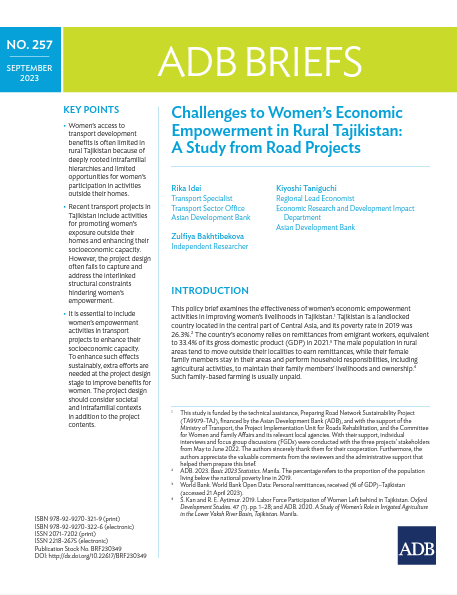
- Details
"This brief analyzes ways to economically empower women in rural Tajikistan and highlights how better integrating measures into the development of critical transport infrastructure projects can help narrow the substantial gender gap."
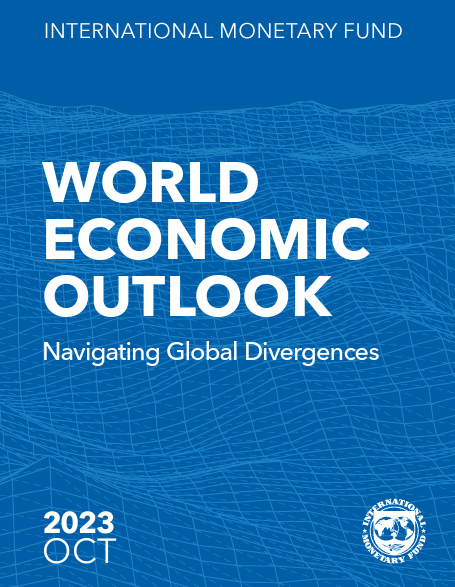
- Details
"Divergent growth prospects across the world’s regions pose a challenge to returning to prepandemic output trends. Despite signs of resilience earlier in 2023, the impact of policy tightening to reduce inflation is expected to cool economic activity going forward. While risks to the outlook are more balanced than earlier in the year, on account of Swiss and US authorities’ having acted decisively to contain financial turbulence, they remain tilted to the downside, implying little margin for policy errors."
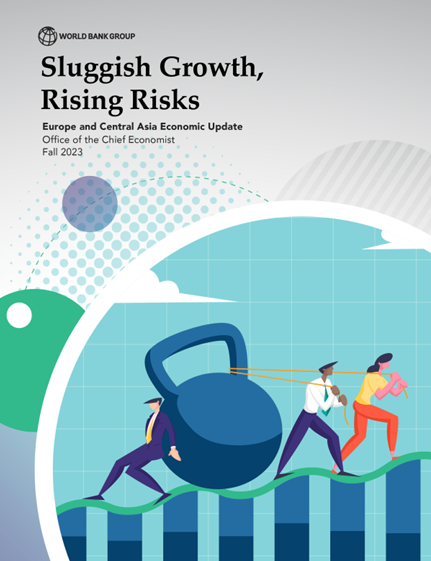
- Details
"Europe and Central Asia continues to be negatively impacted by the Russian Federation’s invasion of Ukraine, tighter global financial conditions, persistent inflation, and global economic fragmentation. Economic growth in the region is projected to remain weak relative to the long-term trend, delaying the convergence of living standards to those of high-income countries."
Read more … WB's Europe and Central Asia Economic Update, Fall 2023: Sluggish Growth, Rising Risks
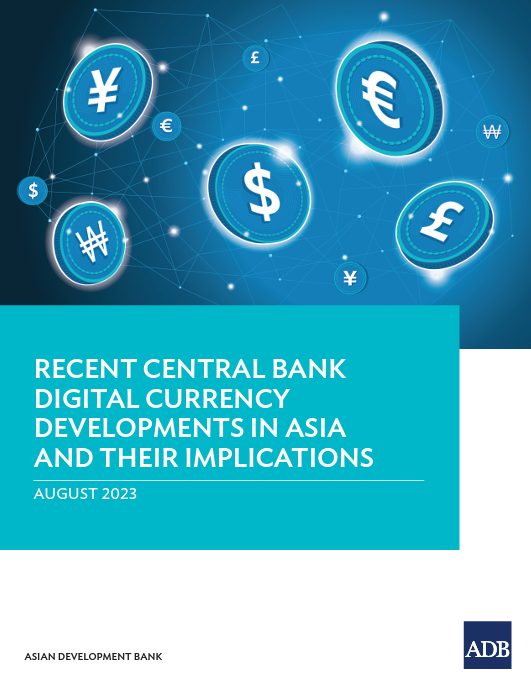
- Details
"This publication analyzes the evolution of Central Bank Digital Currencies (CBDC) in Asia and the Pacific, assesses their potential risks and technical challenges, and shows their potential to improve cross-border payments and financial inclusion."
Read more … Recent Central Bank Digital Currency Developments in Asia and Their Implications
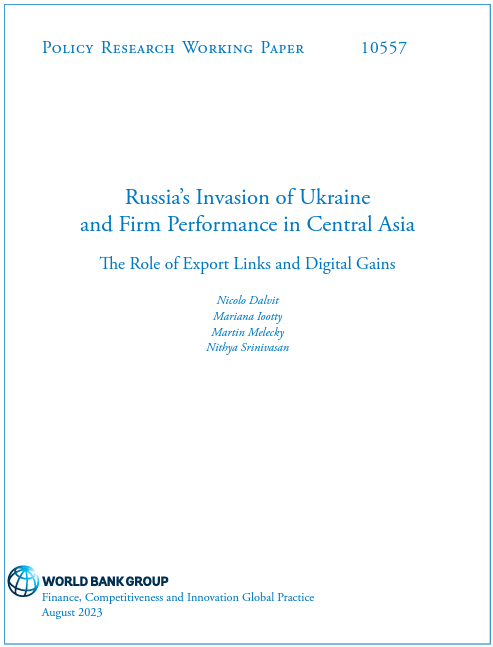
- Details
"This paper studies the effect of Russia’s invasion of Ukraine on the performance of firms in Central Asia. It uses unique data from the Business Pulse Survey run by the World Bank in the Kyrgyz Republic, Tajikistan, and Uzbekistan, which tracks the sales and employment—along with other main characteristics—of about 1,200 to 1,800 firms in a panel structure. Using the difference-in-differences methodology in a regression setup, the analysis finds that Central Asian firms with pre-invasion trade links to Russia suffered greater drops in sales and employment after the invasion—even though exporters to Russia may have experienced, on average, higher sales during the studied period."
Read more … Russia’s Invasion of Ukraine and Firm Performance in Central Asia
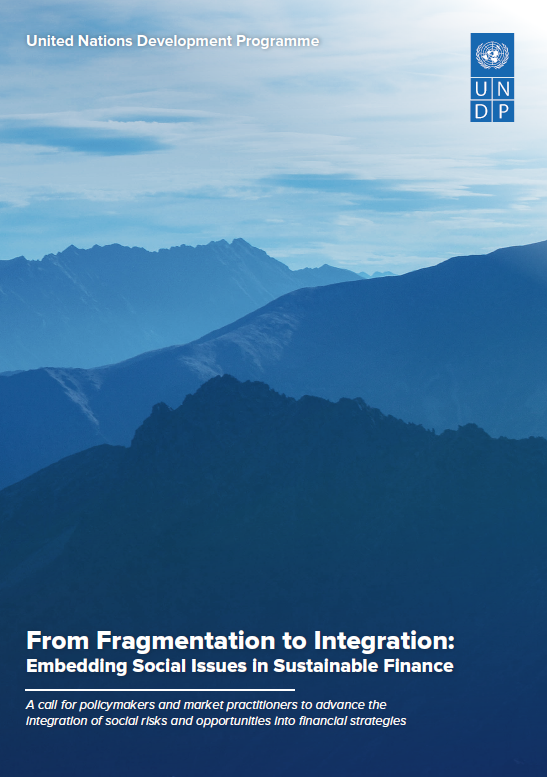
- Details
"The paper From Fragmentation to Integration: Embedding Social Issues in Sustainable Finance aims to generate momentum within the financial system to tackle inequality and improve a common understanding of the social impacts of a market-based economy. Drawing insights from the climate agenda, it sheds light on how to catalyze action at the policy and regulatory levels through existing sustainable finance initiatives. Based on the collective expertise of several institutions and a global consultation, the paper provides key recommendations for governments, regulators and financial institutions to: support research on the systemic risk of socio-economic inequality for financial stability; adopt and improve social disclosure standards and risk management tools; and rethink the macroeconomic determinants of sustainable finance."
Read more … From Fragmentation to Integration: Embedding Social Issues in Sustainable Finance
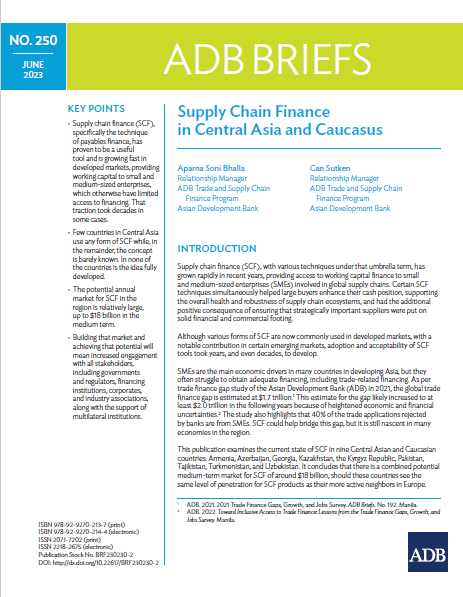
- Details
"Supporting resilient and healthy supply chain ecosystems, SCF can also help to facilitate and bridge trade finance gap—especially for small and medium-sized enterprises, which are the main economic drivers in developing Asia. Finding there is a potential medium-term SCF market of around $18 billion, the publication examines the current state of SCF in the Central Asian and Caucasian countries comprising Armenia, Azerbaijan, Georgia, Kazakhstan, Kyrgyz Republic, Pakistan, Tajikistan, Turkmenistan, and Uzbekistan."
Read more … Supply Chain Finance in Central Asia and Caucasus
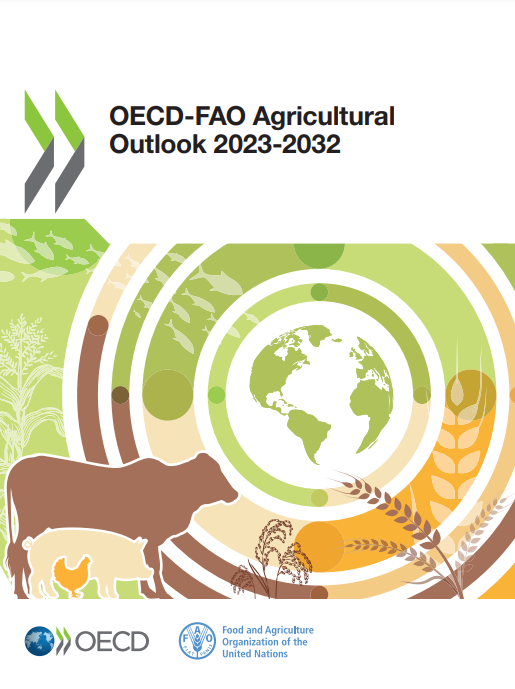
- Details
"This report is a collaborative effort between the Organisation for Economic Co-operation and Development (OECD) and the Food and Agricultural Organization (FAO) of the United Nations, prepared with inputs from Member countries and international commodity organisations. It highlights fundamental economic and social trends that drive the global agri-food sector, assuming there are no major changes to weather conditions or policies."
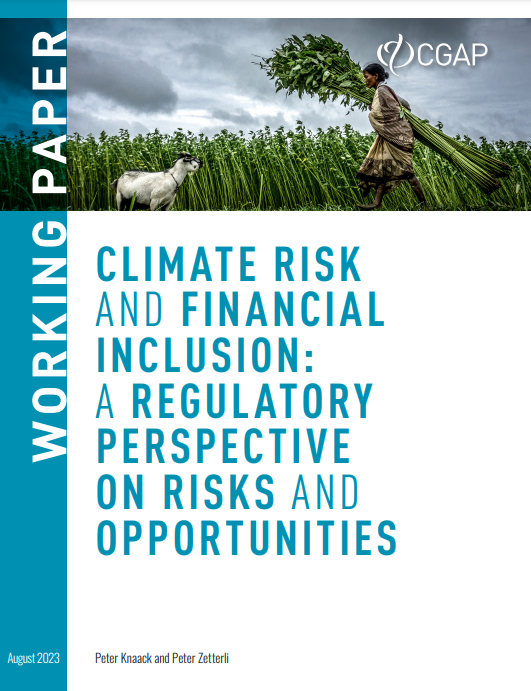
- Details
"Climate change poses risks to the real economy. This may drive a retrenchment of the financial sector away from serving the least profitable and most climate-exposed clients, namely low-income, rural households, and micro, small, and medium enterprises. Moreover, new reporting and disclosure requirements for increased environmental due diligence, along with other necessary regulatory actions, can unintentionally exacerbate financial exclusion if they are not implemented with a risk-based approach. This working paper outlines how inclusive green finance policies can enhance financial stability by creating a more resilient real economy and reducing the risks facing the financial sector."
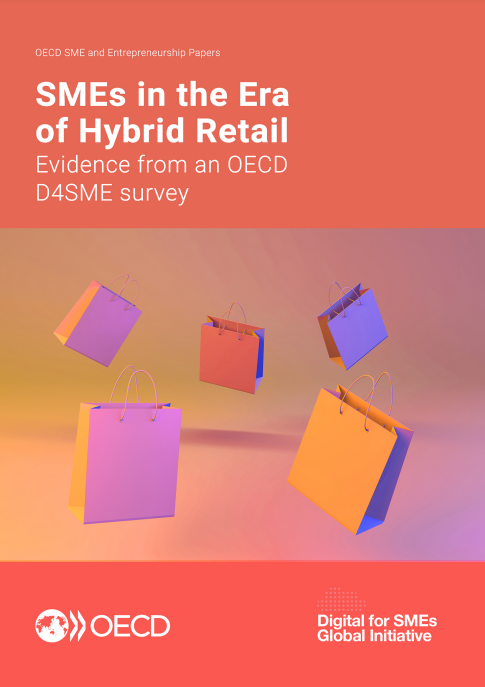
- Details
"Digitalisation has triggered a profound transformation of the retail sector, primarily composed of SMEs. While retail businesses are embracing more hybrid practices of managing online and brick-and-mortar channels, getting more traditional SME retailers fit for the hybrid era could open up new opportunities, with far reaching implications on the local economy. Through a novel survey conducted in six OECD countries (France, Germany, Italy, Japan, Korea, and Spain) in co-operation with e-commerce platforms, this report provides new insights to better understand retail SMEs’ perceived advantages and challenges of operating online sales through these platforms, with a particular spotlight on hybrid SME retailers."
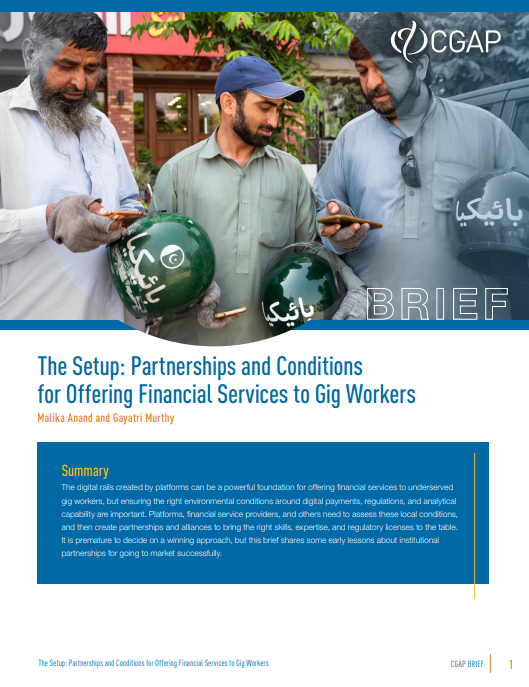
- Details
"The digital rails created by platforms can be a powerful foundation for offering financial services to underserved gig workers, but ensuring the right environmental conditions around digital payments, regulations, and analytical capability are important. Platforms, financial service providers, and others need to assess these local conditions, and then create partnerships and alliances to bring the right skills, expertise, and regulatory licenses to the table."
Read more … Partnerships and Conditions for Offering Financial Services to Gig Workers
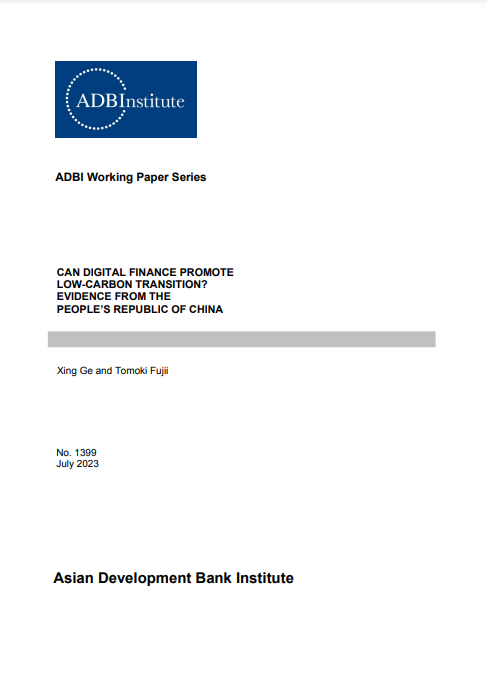
- Details
"Using panel data of cities in the People’s Republic of China from 2011 to 2019, we analyze the impact of digital finance on low-carbon transition derived from a super-efficiency slacks-based measure data envelopment analysis. We find that digital finance promotes low-carbon transition, and this finding is robust with respect to the choice of sample, potential presence of measurement issue, choice of study period, presence of other policies, and potential endogeneity, among others. This impact, at least in part, is through increased green innovations. We also find evidence for impact heterogeneity across locations and by the level of low-carbon transition."
- Gender-Inclusive Development through Fintech: Studying Gender-Based Digital Financial Inclusion in a Cross-Economy Setting
- Breaking Barriers, Building Successful Businesses: A Gender Inclusivity Toolkit for Young Entrepreneurs
- Women as Agents of Change for Greening Agriculture and Reducing Gender Inequality
- EBRD's Annual Review 2022


